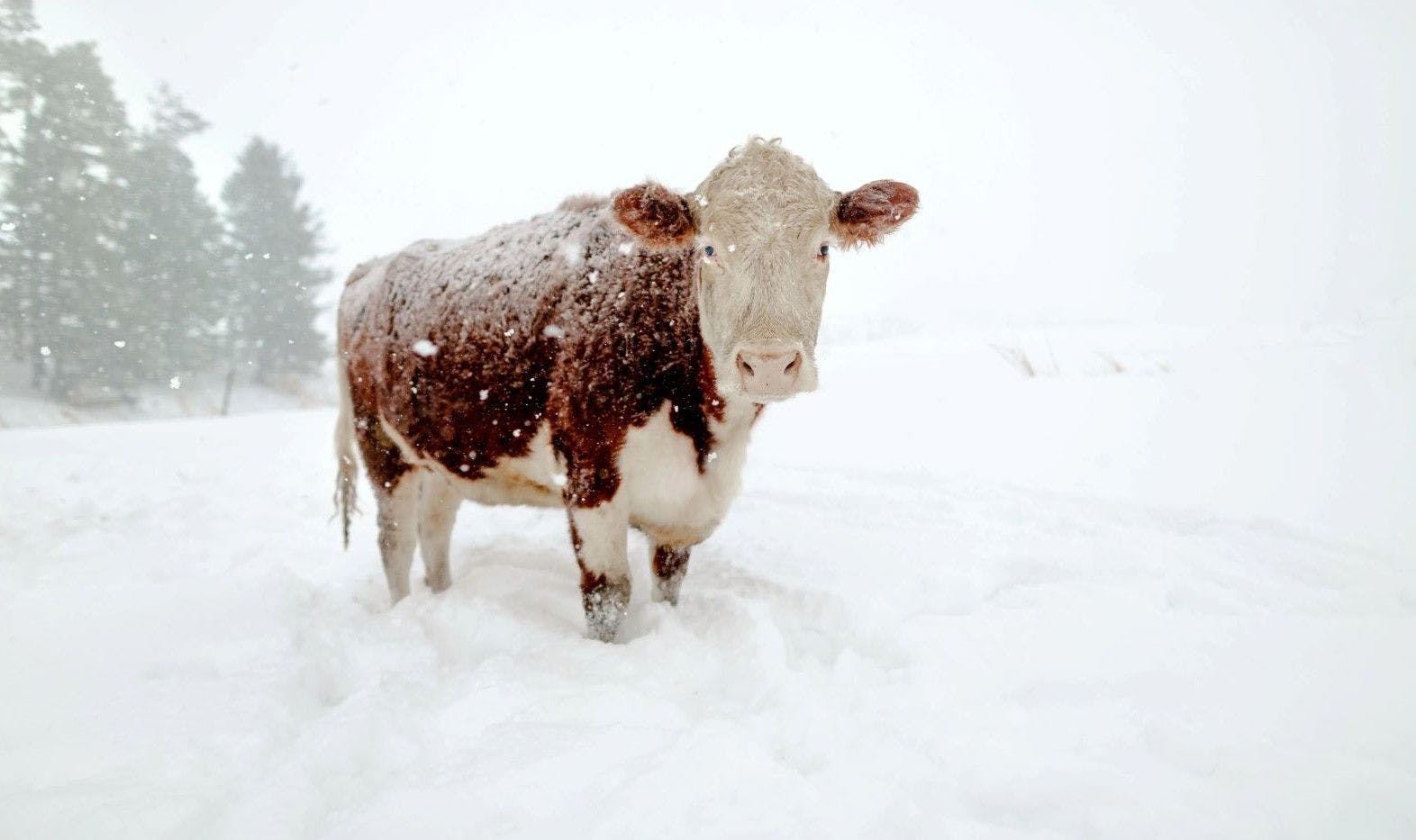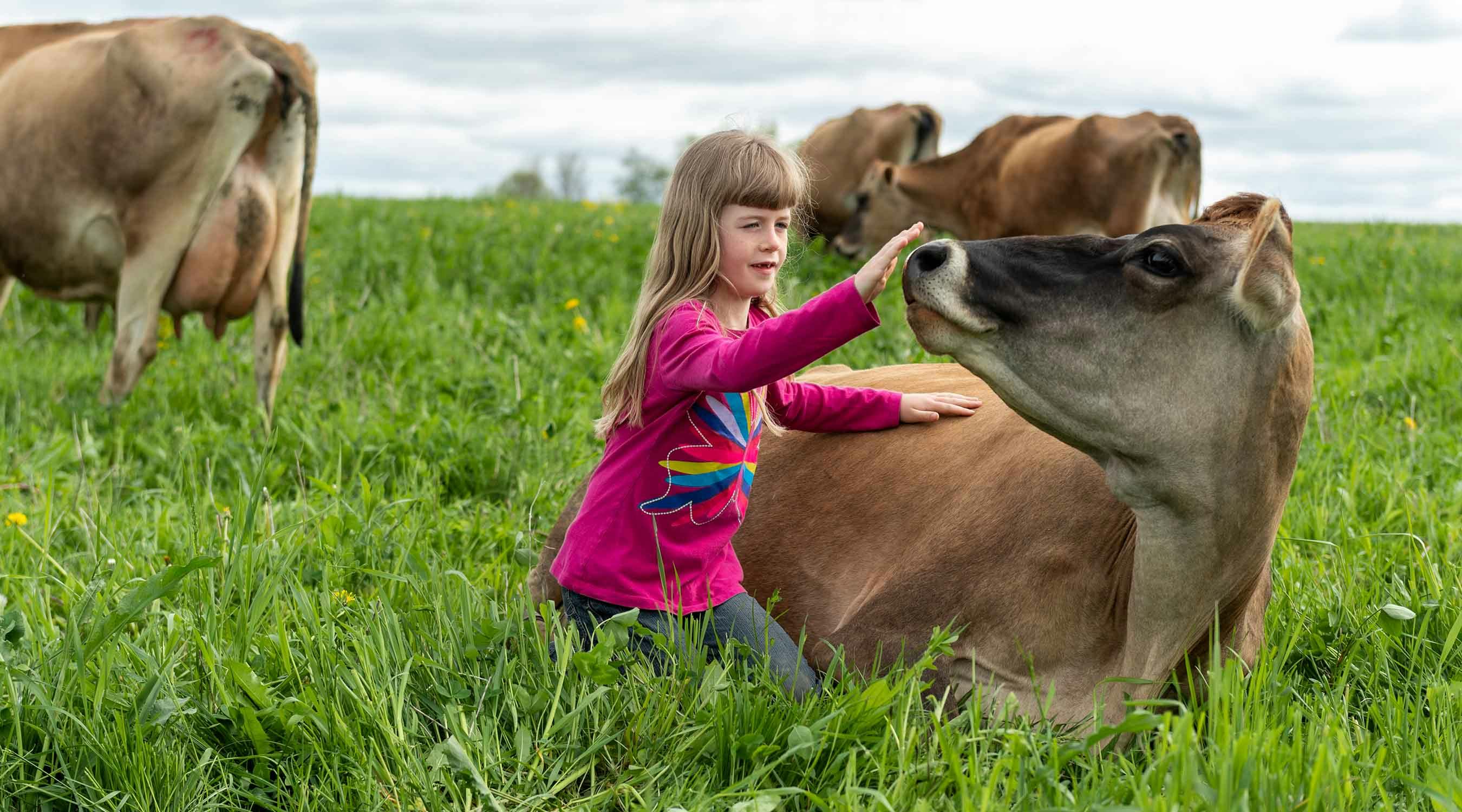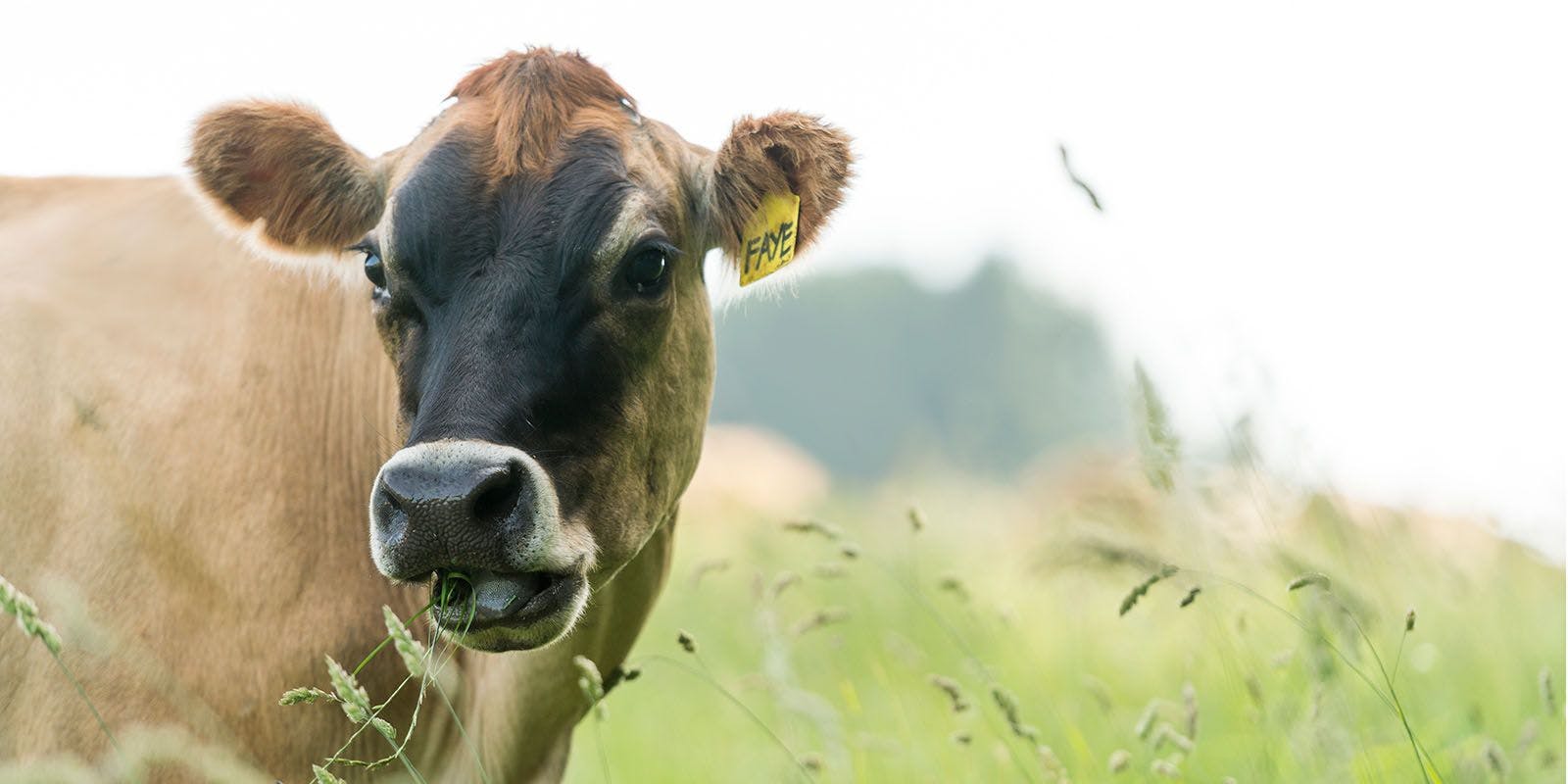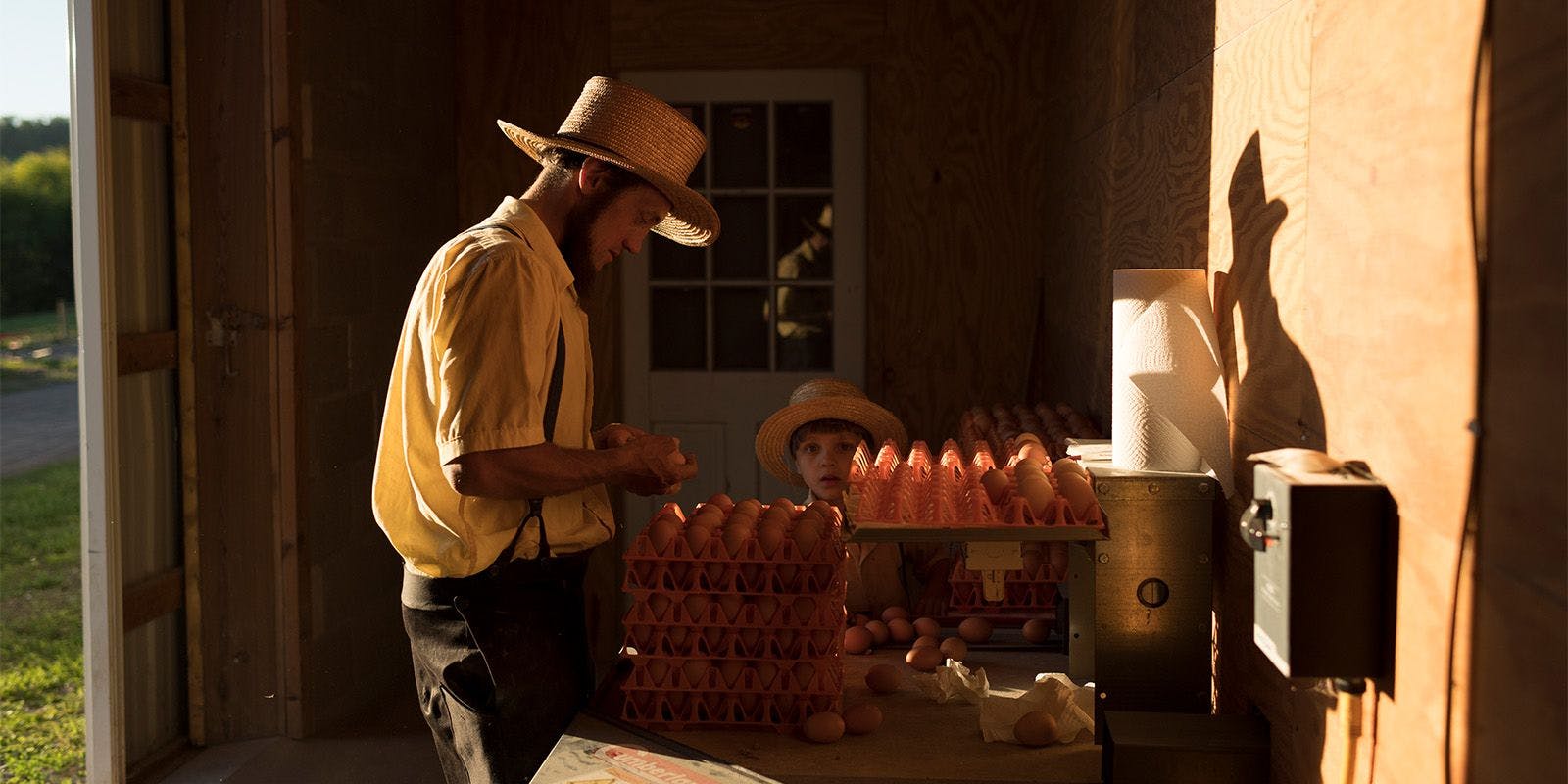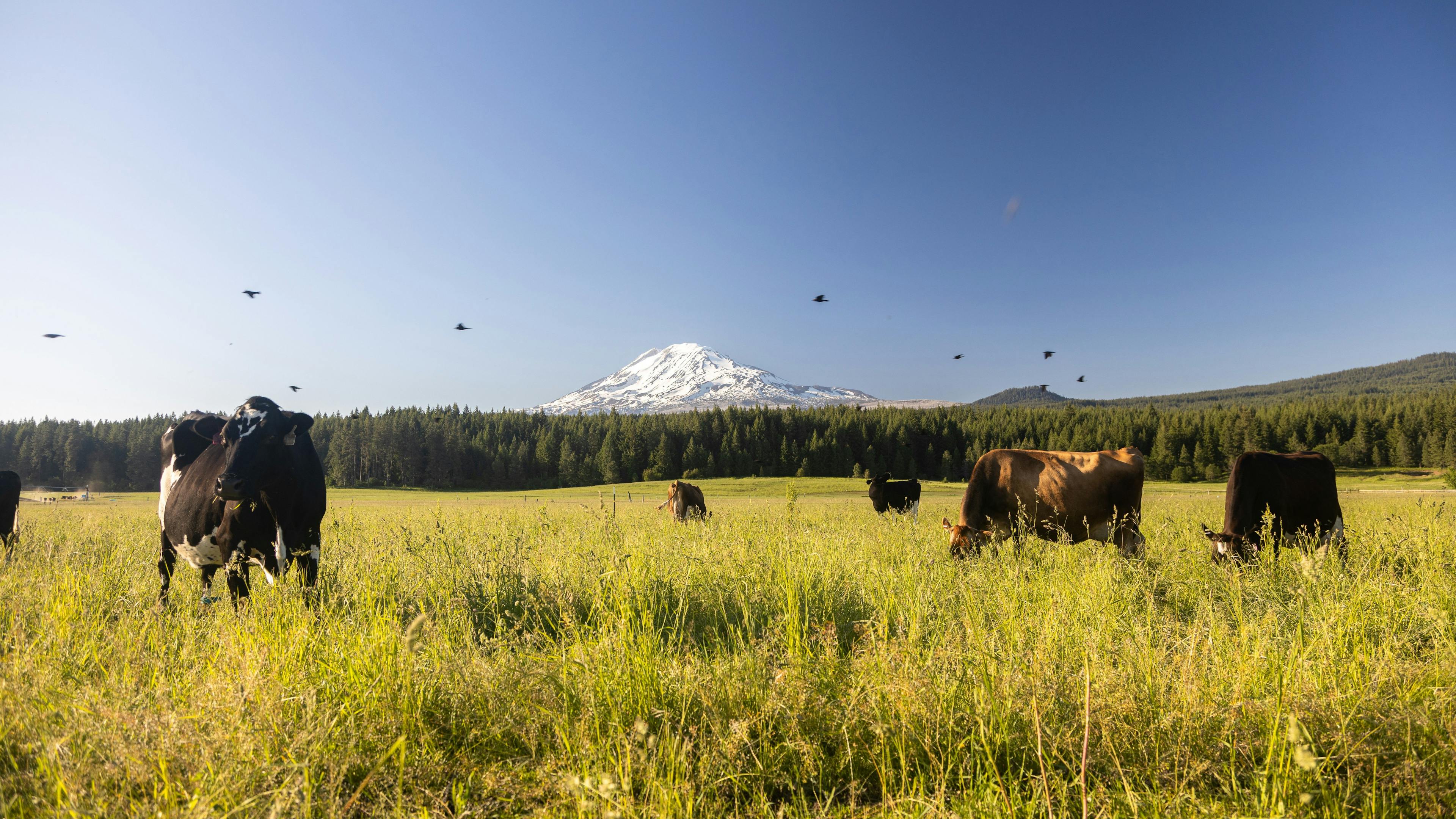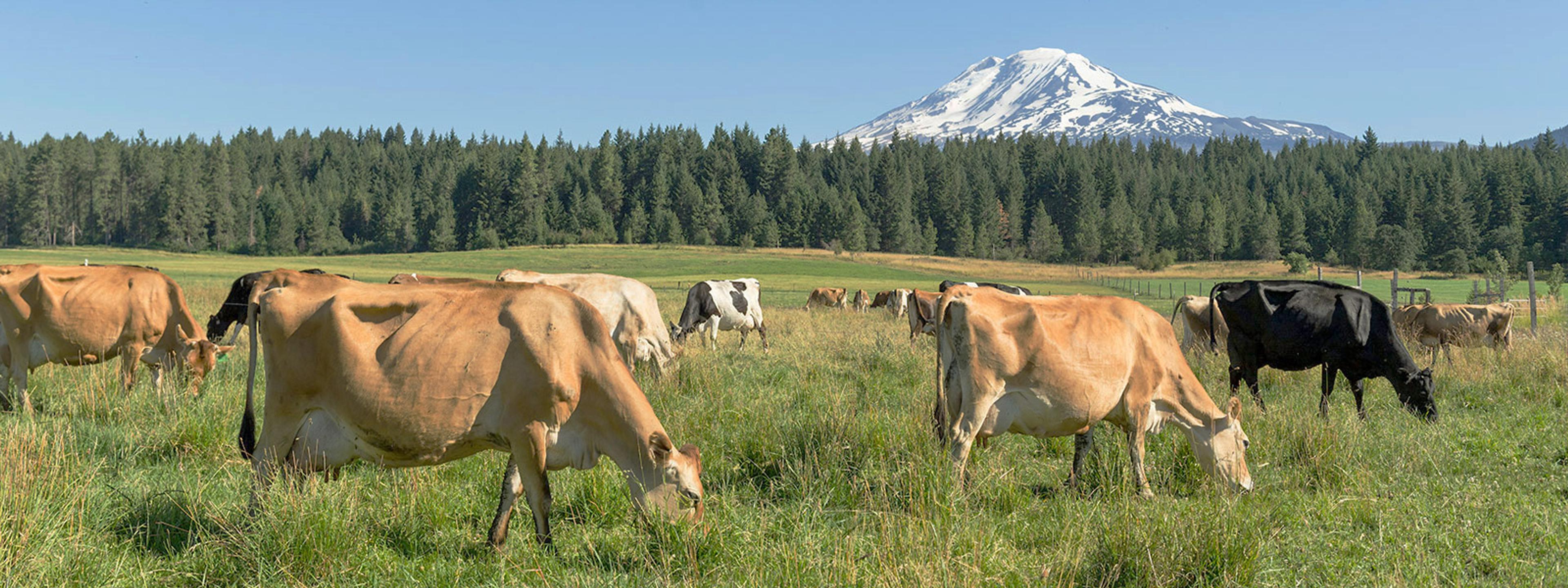
Farming
Pasture-Raised: Cows Belong in the Fields
What Is Pasture-Raised Dairy?
Pasture-raised dairy is a philosophy of farming practiced on Organic Valley dairy farms, based on the core principle that cows should spend as much time outside as possible.
This means farmers give their cows access to pasture throughout their grazing season, which is region- and weather-dependent but ranges from 120 days (the National Organic Program minimum) to 200 days a year. Exceptions include extreme heat, bad and dangerous weather, or if a cow is breeding or not feeling well.
Even during winter, we give our cows access to the outdoors when the weather allows. Fresh air and exercise are just as good for cows as it is for people!
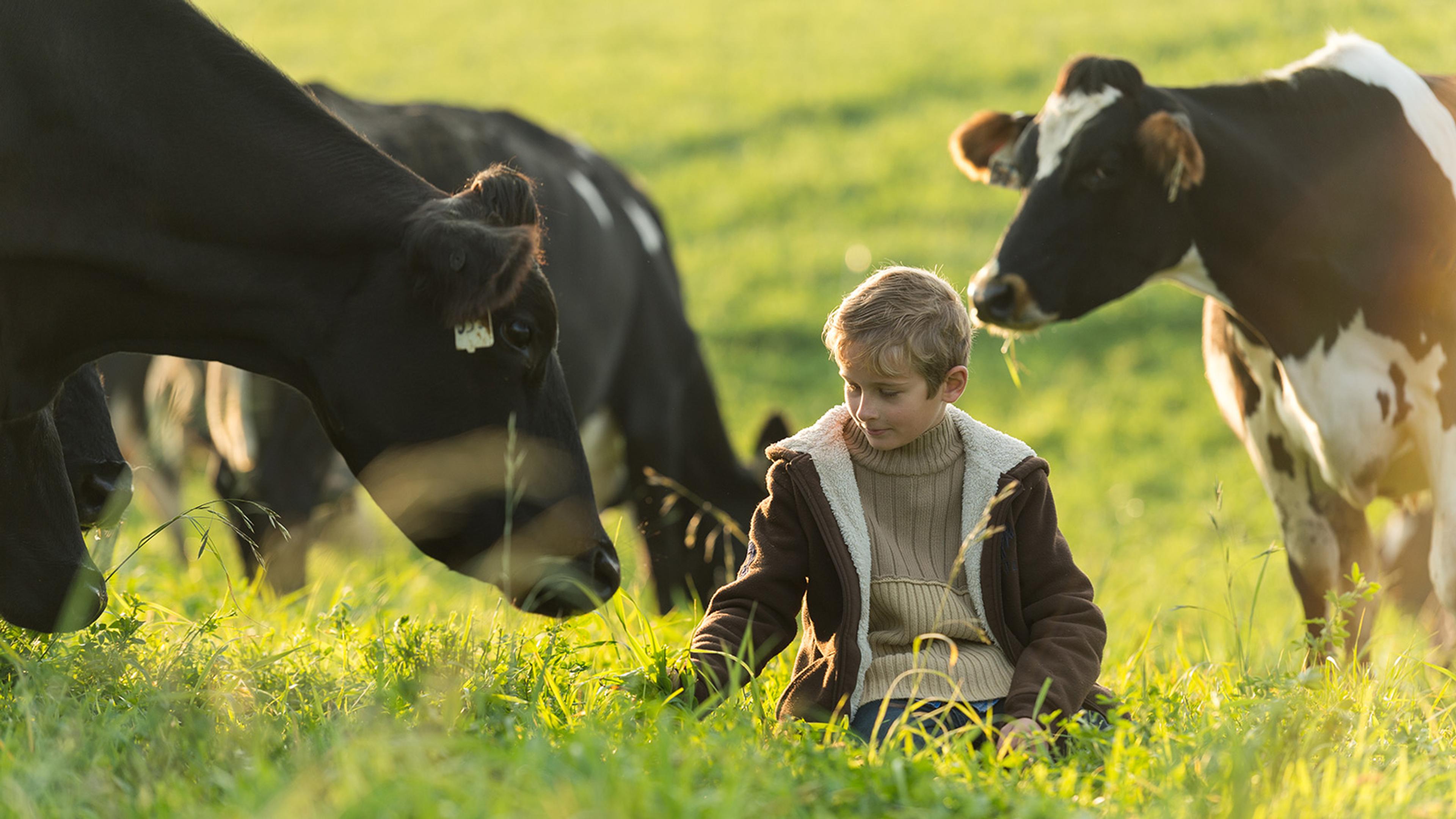
Why Organic Pasture-Raised?
Animals: We start with respect for our animals. We want them to live low-stress, healthy lives. This means letting them do what they’ve done for thousands of years: roam and graze the fields. It also means, in keeping with USDA Organic standards, never using artificial hormones, and never using antibiotics except to prevent suffering (if used, that cow loses its organic certification). In short, we let cows be cows! (Here's more on what it means to be certified organic.)
Environment: Milk from cows raised on pasture promotes sustainability and healthy soil.
- Grass growing in pastures (aka perennial agriculture) prevents erosion and increases the soil's ability to store carbon, keeping it out of the atmosphere.
- Rather than trucking feed in from elsewhere, cows use their own energy to wander the fields and harvest their food.
- Grass-based farming increases biodiversity, fostering a healthier local community of insects and pollinators.
- Manure is naturally “distributed” by the cows in the pastures, where it dries into patties and, through aerobic decomposition, breaks down quickly and naturally, fertilizing the soil while emitting less methane or other greenhouse gases than anaerobic methods, like manure pits.
- On top of that, our animals eat all organic food, so every bit of that food was raised without the use of toxic chemicals or GMOs, which means fewer chemicals in our ecosystems and waterways.
- Learn more about Organic Valley’s sustainability efforts.
It’s plain common sense: To us it’s pretty obvious that cows belong outside. We see every day how they are more content and less stressed when they get outside regularly.
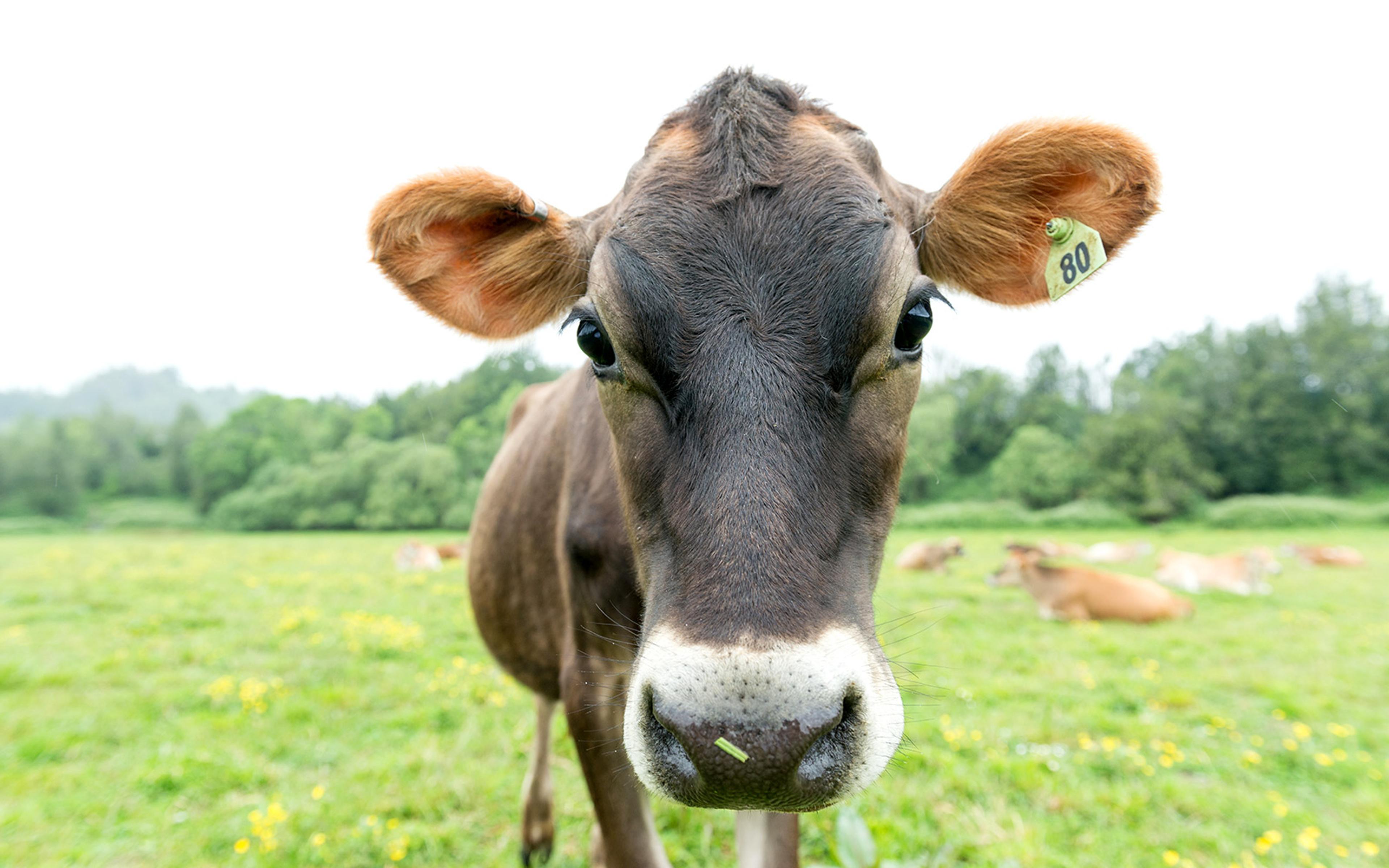
What’s the Difference?
The way we raise dairy cows at Organic Valley is dramatically different from how it’s done on confinement dairy farms, which provide the majority of milk in the United States. We are proud that the average herd size on Organic Valley farms in less than 70 cows! Our average dairy herd size is 3.5 times smaller than the national average.
Confinement farms, which can house thousands of cows, keep their cows in large barns, and while they may eat dried forages like hay, those cows rarely, if ever, spend physical time on grass. These cows are fed more grains — typically genetically modified corn or soy — than cows on organic diets.
In contrast, Organic Valley cows are all pasture-raised, which means that they spend every possible day of the grazing season, well, grazing. That means that our farms actually look like the farms you imagine in your head: green fields with real cows really walking around, eating grass, dozing in the sunshine, socializing and generally doing cow stuff.
Over the course of the year (including the non-grazing months), a pasture-raised cow’s diet is composed of mostly grass, both fresh (growing in pasture) and dried (such as hay), along with a ration of grain to supplement their nutrition.
Watch and listen to these gals munching away on organic pasture:
Are all Organic Valley Pasture-Raised Cows also Grass-Fed?
Yes, all Organic Valley pasture-raised cows are grass-fed, but not all are 100% grass-fed or Certified Grass-Fed Organic.
Our standard pasture-raised dairy products are grass-fed — in the general sense that the majority of their diet consists of fresh pasture and dried forages. Thanks to Organic Valley’s high feeding standards and our farmers’ hard work, the amount of grain Organic Valley pasture-raised cows receive is significantly less than what is received by industrial-farmed cows (which provide the majority of milk in the United States).
Organic Valley always meets or exceeds USDA Organic standards for time spent on pasture and for the percentage of the cows’ diet made up of fresh grass during grazing season. On average during the grazing season, our pasture-raised cows receive 55% of their diet from fresh pasture grasses — eaten outdoors, harvested with their own mouths. The remainder of their diet will be made up of dried forages and a small amount of organic grains. Our cows also log an average 191 days on pasture during the grazing season, surpassing the USDA Organic minimum of 120 days.
In comparison, 100% grass-fed and Certified Grass-Fed Organic mean the cows only eat grasses and forages (plus a small amount of approved nutritional supplements, like molasses, if needed) — no grains. Our Grassmilk® products (milk and cheese) are all pasture-raised and Certified Grass-Fed Organic.
Related Articles
- Tags:
- animal care,
- grass-fed,
- food labeling













